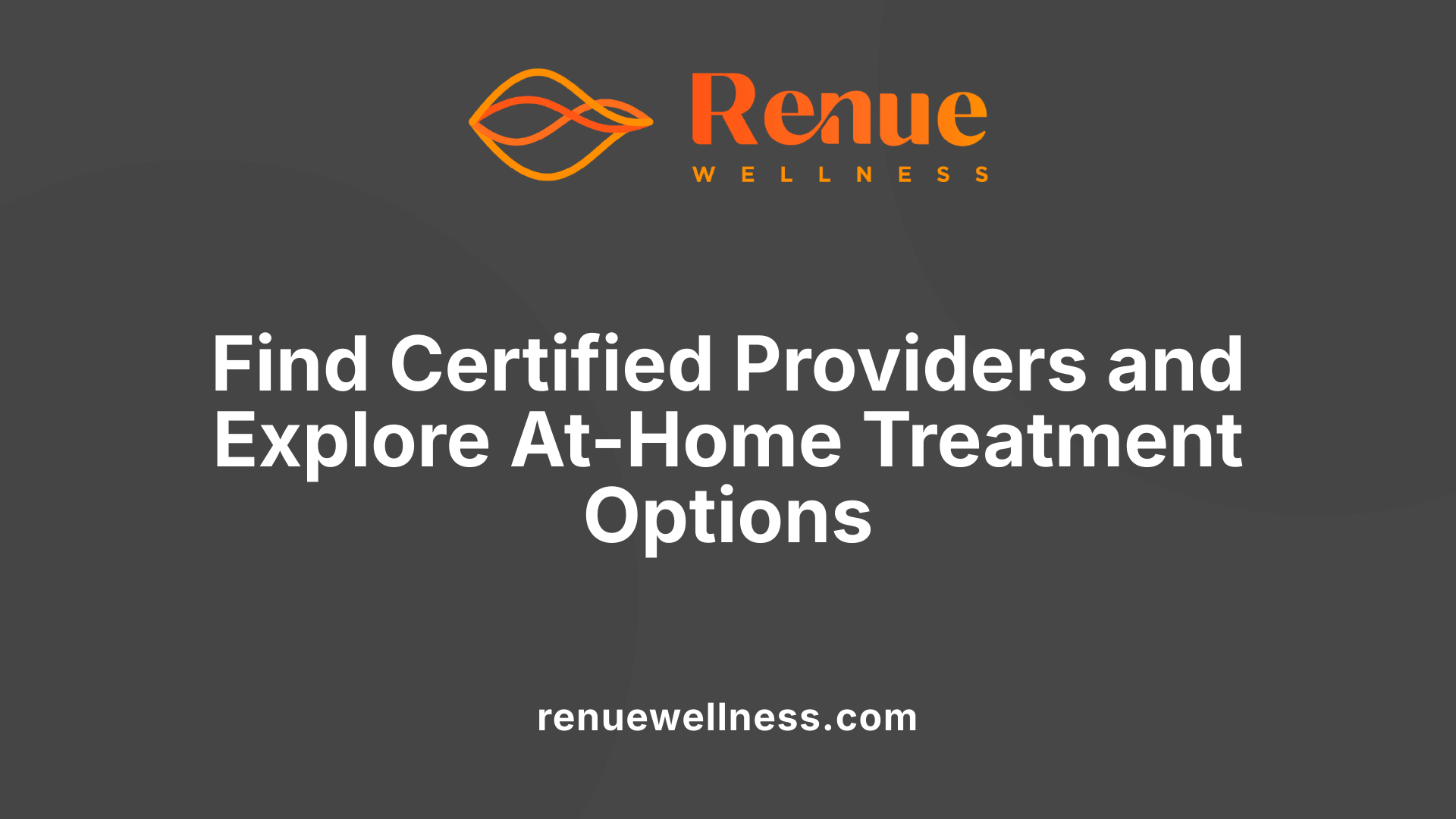NY & NJ Interstate Referral Guide for Ketamine Therapy


July 22, 2025
Understanding Interstate Ketamine Therapy Options in New York & New Jersey
Ketamine therapy has gained recognition for its rapid and effective treatment of various mental health conditions, especially treatment-resistant depression. For residents of New York and New Jersey seeking specialized care outside their home states, understanding the guidelines, legal considerations, and procedural steps for interstate referrals is vital. This guide provides detailed information on how patients can access, navigate, and benefit from ketamine treatments across state borders, ensuring safety, compliance, and optimal outcomes.
Overview of Ketamine Therapy Services in NY & NJ
What types of ketamine and esketamine treatments are offered, and what conditions do they treat?
At our centers in New York and New Jersey, we provide two main forms of ketamine-based treatments: IV ketamine infusion therapy and Spravato (Esketamine) nasal spray. IV ketamine involves administering the drug directly into the bloodstream for rapid symptom relief, particularly for depression, anxiety, PTSD, and other mood disorders. This method offers quick onset, often within hours, and is overseen by experienced medical professionals ensuring safety.
Spravato, an FDA-approved nasal spray containing esketamine, is specifically designed for treatment-resistant depression. Administered under medical supervision, it is often combined with ongoing antidepressant therapy to enhance effectiveness. Esketamine helps rapidly reduce suicidal thoughts and mood symptoms, providing a crucial option for patients unresponsive to traditional antidepressants.
Beyond depression, emerging research supports these treatments for conditions like anxiety, PTSD, neuroinflammation, and neuropathy. Both methods can be incorporated into personalized treatment plans involving multiple sessions over several weeks, tailoring care to each patient’s needs.
What are the procedures and processes for referring across state lines for ketamine treatment?
Referring patients across state lines for ketamine therapy requires careful coordination and adherence to legal and medical standards. Our process begins with thorough medical evaluations to determine eligibility, especially for treatment-resistant conditions. We verify that both states' regulations support cross-border treatment, ensuring compliance with licensing and practice laws.
Collaboration between licensed healthcare providers—including physicians, nurse anesthetists, and mental health specialists—is vital. We facilitate detailed documentation, informed consent, and assessment procedures to confirm patient readiness. Our team ensures seamless communication and continuity of care across state lines.
Patients are guided through the process, which includes understanding the treatment modalities, scheduling appointments, and managing prescriptions. Post-treatment follow-ups are emphasized to monitor progress and adjust plans as needed, ensuring safety and efficacy. We also address logistical considerations, such as clinic locations and eligibility requirements, to streamline cross-state treatment access.
Locations and provider networks in NY & NJ
Our centers are conveniently located across multiple sites in New York, including the Upper West Side, Midtown Manhattan, Brooklyn Heights, and New Rochelle, as well as in Oradell, New Jersey. Each location is staffed with highly trained emergency medicine physicians and mental health professionals committed to providing safe, personalized care.
These locations are equipped with extensive hours, including evenings and weekends, to accommodate diverse schedules. Our provider network emphasizes accessibility, allowing patients to receive expert care close to home.
Availability of at-home ketamine options
In addition to in-clinic treatments, we now offer at-home ketamine therapy options in New York and New Jersey. This innovative approach enhances convenience, privacy, and comfort for patients who prefer treatment outside traditional clinical settings.
At-home therapy involves supervised sessions, ongoing medical evaluation, and adherence to strict safety protocols. Patients receive thorough instructions on preparation, safe administration, and environment setup to optimize results.
Proper medical evaluation is essential before initiating at-home treatments. Our team provides ongoing monitoring, integration support with mental health professionals, and guidance to ensure safety and effectiveness. This approach makes ketamine therapy more accessible and adaptable to individual lifestyles.
| Treatment Type | Administration Method | Conditions Treated | Additional Notes |
|---|---|---|---|
| IV Ketamine | Intravenous infusion | Depression, anxiety, PTSD, neuroinflammation | Rapid relief, requires monitoring |
| Spravato (Esketamine) | Intranasal spray | Treatment-resistant depression, suicidal ideation | Administered under supervision, FDA-approved |
| At-home Ketamine | Various (intranasal, oral, infusion) | Depression, anxiety (with evaluation) | Convenience, privacy, safety monitoring |
Our commitment is to provide comprehensive, safe, and accessible ketamine treatments tailored to each patient's unique needs across NY and NJ.
Legal and Regulatory Framework for Interstate Ketamine Referrals

What legal and regulatory considerations should be taken into account for interstate ketamine referrals?
Providers offering ketamine treatments across state lines must navigate a complex web of federal and state laws. At the federal level, compliance with the Controlled Substances Act is essential. This law requires healthcare providers to have a Drug Enforcement Administration (DEA) registration, enabling them to handle, store, and distribute Schedule III substances like ketamine legally. Proper storage and meticulous record-keeping are also mandated to prevent misuse or diversion.
State-specific laws add another layer of regulation. Each state has its own licensing requirements for medical practitioners and rules regarding the establishment of valid medical-psychiatric relationships. These laws often dictate necessary informed consent protocols, documentation standards, and practice guidelines. In some states, additional permits or licenses for controlled substance handling are necessary, especially in states like Texas, which has strict administration and dispensing rules.
Telemedicine has revolutionized access to treatment but introduces its own regulatory considerations. Regulations vary significantly by state, with some requiring in-person assessments before prescribing or administering ketamine, while others allow remote evaluations under certain conditions. Telehealth providers must stay updated on these evolving rules to ensure legal compliance.
To legally provide treatment across state lines, clinicians must hold appropriate state-controlled substance licenses and permits. Failure to secure these credentials can lead to legal repercussions, including license suspension or penalties. Continuous monitoring of legislative updates and recent legal developments, such as changes in telehealth policies or new restrictions on ketamine use, is vital for maintaining compliance.
How can patients across state borders access ketamine treatment?
Patients interested in cross-border access to ketamine therapy should prioritize working with licensed healthcare providers experienced specifically with infusion therapies. It is critical to verify that the clinic or provider is properly licensed to operate in their respective state — this assures adherence to local laws and safety standards.
A formal referral or prescription from a qualified medical professional often serves as the initial step. Before beginning treatment, patients typically undergo comprehensive evaluations, including health histories, physical examinations, and laboratory tests, to assess eligibility and identify potential contraindications.
Treatment usually involves supervised infusions at authorized centers, with ongoing monitoring for adverse reactions or side effects. Follow-up appointments are essential to assess progress and adjust treatment plans accordingly. Patients should also verify insurance coverage, understand billing procedures, and inquire about safe disposal methods for unused substances to prevent misuse.
Effective communication with a knowledgeable healthcare team ensures that treatment remains safe, compliant, and tailored to individual needs. This approach helps navigate the legal landscape and ensures a seamless experience for patients seeking treatment across state borders.
Additional Information and Considerations
| Aspect | Requirement/Recommendation | Additional Details |
|---|---|---|
| DEA Registration | Mandatory for handling Schedule III substances | Must be registered in the state of practice |
| State Licensing | Obtain necessary licensing and permits | Varies by state; some require specific controlled substance licenses |
| Telemedicine Regulations | Varies widely by state | In-person assessments may be required in some jurisdictions |
| Informed Consent | Essential and legally mandated | Must include discussions around risks, benefits, and alternatives |
| Prescription and Administration | Must follow state-specific protocols | Some states require direct supervision or special permitting |
| Disposal Methods | Proper disposal to prevent diversion | Follow federal and state guidelines |
| Recent Legal Changes | Keep abreast of evolving regulations | Changes may affect telehealth, prescribing, or handling procedures |
By understanding these legal and regulatory frameworks, both providers and patients can navigate interstate ketamine therapy safely and effectively, ensuring compliance while optimizing treatment outcomes.
Clinical Efficacy and Conditions Treated with Ketamine

What types of ketamine and esketamine treatments are offered, and what conditions do they treat?
The treatment options at specialized centers include IV ketamine infusion therapy and Spravato (Esketamine) nasal spray. Both target the brain's glutamate system, providing rapid symptom relief. Esketamine, administered via nasal spray under medical supervision, is FDA-approved specifically for treatment-resistant depression and suicidal ideation.
Ketamine infusions involve delivering the medication directly into the bloodstream through IV, suitable for depression, neuropathic pain, and perioperative discomfort. These methods vary in duration and frequency, with multiple sessions over several weeks often necessary for optimal results.
Research indicates expanding uses of ketamine and esketamine beyond depression, including applications for anxiety, PTSD, neuroinflammation, and neuroprotection. Emerging evidence suggests these treatments may benefit conditions traditionally resistant to other therapies, pointing toward broader therapeutic potential.
How can patients navigate or facilitate the process of obtaining an interstate referral for ketamine therapy?
Patients interested in cross-state treatment should start by discussing their options with their current healthcare providers to assess eligibility and gather support for the referral.
Verifying the licensure of the prospective clinic and its acceptance of insurance is crucial to prevent logistical issues.
A thorough evaluation including medical history, mental health assessment, and contraindication review is essential. This process ensures safety and appropriateness for ketamine therapy.
Clear communication with both the referring and receiving providers, along with understanding treatment logistics like costs, legal considerations, and scheduling, streamlines the referral process.
Having a detailed plan and support system in place helps patients manage the complexities of interstate treatment effectively.
The Treatment Process and Advancements in Ketamine Therapy
Most centers emphasize personalized treatment plans, combining ketamine therapy with psychotherapy for enhanced outcomes. These sessions are overseen by trained medical staff, including emergency medicine physicians, ensuring safety during all procedures.
Proper preparation involves creating a calming environment and informing support persons about the process. Patients are regularly monitored for potential side effects like mild nausea, dizziness, or blood pressure increases, which are carefully managed.
Recent advances include the availability of at-home ketamine therapy in select regions, offering convenience, privacy, and comfort. Proper medical evaluation, ongoing monitoring, and professional support are vital for successful home treatment.
Scientific Evidence and Future Directions
The mechanism by which ketamine works differs from traditional antidepressants—by increasing glutamate levels, it helps rewire neural pathways related to mood regulation. This process often leads to rapid improvement, sometimes within hours or days.
Numerous clinical studies support ketamine’s efficacy for depression, anxiety, PTSD, and psychosis, demonstrating significant symptom reduction in a substantial proportion of patients.
Besides its current uses, ongoing research explores potential neuroprotective effects and new indications such as neuroinflammation reduction and cognitive enhancement. These promising developments suggest that ketamine’s therapeutic benefits could expand considerably.
| Treatment Type | Conditions Treated | Administration Method | Potential Uses |
|---|---|---|---|
| IV Ketamine Infusion | Depression, PTSD, Chronic Pain | Intravenous | Mood disorders, neuropathic pain, perioperative comfort |
| Esketamine Nasal Spray | Treatment-Resistant Depression, Suicide | Nasal spray | Severe depression, urgent suicidal ideation |
| At-home Therapy | Depression, Anxiety (selected regions) | Oral, IV (under supervision) | Confidentiality, convenience, expanding access |
This comprehensive approach highlights the evolving landscape of ketamine therapy, emphasizing safety, personalized care, and a broadening scope of applications.
Availability of Programs in NY & NJ

What are the available ketamine therapy programs, locations, and provider networks in NY & NJ?
Patients seeking ketamine therapy in New York and New Jersey have access to multiple reputable clinics with various treatment options. These clinics are strategically located in areas such as Manhattan, Brooklyn, New Rochelle, and Oradell, offering convenient access across urban and suburban locales.
Each center emphasizes personalized care, assembling multidisciplinary teams that include physicians, psychologists, and nurses. This collaborative approach helps tailor treatment plans to individual needs, whether through IV infusions, nasal spray administration, or emerging at-home therapies.
Flexibility in scheduling is a key feature. Clinics often operate during evening hours and weekends, recognizing that many patients have busy lifestyles or work commitments. This flexibility makes it easier for patients to fit therapy sessions into their schedules without significant disruption.
On-site medical supervision is integral to these programs. During infusions or nasal spray treatments, highly trained emergency medicine physicians are present to ensure safety, monitor for side effects, and intervene if necessary. This strict oversight contributes to the overall safe administration of ketamine therapies.
In addition to in-clinic offerings, several centers now provide at-home ketamine treatments, increasing accessibility and comfort for patients. These at-home options are carefully managed with proper evaluations, protocols, and ongoing support.
| Location | Treatment Options | Provider Network | Scheduling Hours | Medical Supervision |
|---|---|---|---|---|
| Manhattan | IV, Nasal Spray, At-home | Licensed clinics in NY | Evenings, Weekends | On-site physicians |
| Brooklyn | IV, Nasal Spray | Local health networks | Flexible | Emergency physicians |
| New Rochelle | IV infusions only | Multiple providers | Extended hours | Full monitoring |
| Oradell | Nasal spray, At-home | Certified clinics | Evenings & weekends | Continuous oversight |
How can patients facilitate the process of obtaining an interstate referral for ketamine therapy?
If you're considering ketamine treatment across state lines, a proactive approach is vital. Starting by discussing your intentions with your primary healthcare provider is recommended. They can assist in evaluating your eligibility and providing necessary documentation or referrals.
Many clinics support interstate referrals, but verifying that the chosen provider accepts your insurance and has the proper licensing for out-of-state residents is crucial.
The process typically begins with a comprehensive medical assessment, including psychological evaluations and histories. Once eligibility is confirmed, a formal referral or prescription is arranged through your healthcare provider.
Maintaining open communication throughout this process helps streamline scheduling and administrative necessary paperwork, easing the transition to specialized care.
| Step | Action | Tips | Notes |
|---|---|---|---|
| 1 | Consult with your primary provider | Prepare medical history | Ensure support for ketamine therapy |
| 2 | Verify clinic support for interstate patients | Confirm licensing & insurance | Seek clinics with experience in out-of-state care |
| 3 | Obtain evaluation & referral | Follow medical advice | Gather necessary documents |
| 4 | Coordinate with chosen clinic | Streamline paperwork | Use clinic support services |
| 5 | Begin therapy sessions | Stay engaged | Ongoing communication is essential |
This multi-layered approach ensures that patients across NY and NJ can access effective, personalized ketamine therapy safely and efficiently, making mental health recovery more achievable than ever.
Cost and Insurance Policies for Interstate Ketamine Therapy
What are the policies regarding insurance coverage and costs for interstate ketamine therapy?
Insurance coverage for ketamine therapy can vary depending on the insurer, plan type, and geographic location. Most major commercial insurance providers, such as BlueCross BlueShield, Cigna, Aetna, and United Healthcare, offer some level of coverage for ketamine treatments. This may include in-clinic IV infusions or nasal sprays like Spravato (Esketamine). Coverage often becomes more complex when considering telehealth or at-home therapies, which are gaining popularity.
Medicare and Medicaid coverage for ketamine therapy depends on eligibility criteria, regional policies, and whether the treatment is deemed medically necessary. Patients should verify individual plan benefits to understand coverage limits.
In terms of costs, the typical expense for each ketamine session ranges from approximately $62.50 to $90 in some programs. Patients often face copays between $20 and $40 per session, although this varies. Many clinics and centers accept FSA (Flexible Spending Account) and HSA (Health Savings Account) payments, allowing patients to use pre-tax dollars to offset treatment costs.
To avoid unexpected expenses, patients are encouraged to verify their insurance benefits before starting treatment. This involves contacting insurers directly or consulting with the provider’s billing department to confirm what aspects of therapy are covered, including session limits, deductibles, and out-of-pocket expenses.
How can patients navigate or facilitate the process of obtaining an interstate referral for ketamine therapy?
Navigating interstate referrals involves effective communication between existing healthcare providers and the new treatment clinics. Patients should start by discussing their desire to receive ketamine therapy outside their home state with their current medical team, who can provide support and necessary documentation.
Identifying clinics that accept the patient’s insurance and offer the desired treatment modalities—whether IV infusions, nasal sprays, or at-home therapy—is essential. Patients should inquire about the specific insurance policies those clinics accept, and whether they can facilitate the referral process.
The process typically includes obtaining a formal medical referral, understanding the cost structure, and confirming billing and coverage details with both the provider and insurer. Ensuring transparency around treatment costs and insurance coverage helps prevent surprises.
Coordination among healthcare providers, insurance companies, and patients ensures clear understanding of the treatment plan, financial obligations, and coverage limits. This collaborative approach facilitates smoother access to interstate ketamine therapy, especially when travel or remote treatment options are involved.
Additional Information
For patients seeking detailed information, searching terms like "Insurance policies for ketamine across states," "cost comparisons for ketamine therapy," "FSA/HSA use for ketamine," and "insurance verification procedures in NY & NJ" can provide comprehensive insights.
Table 1 summarizes insurance options, cost ranges, and payment methods relevant to ketamine therapy:
| Insurance Provider | Coverage Likelihood | Typical Costs per Session | Payment Options | Additional Notes |
|---|---|---|---|---|
| BlueCross BlueShield | Varies, often partial | $62.50 - $90 | Copays, FSA/HSA | Confirm specific plans |
| Cigna | Usually covered for medically necessary treatments | $62.50 - $90 | Copays, FSA/HSA | Check coverage limits |
| Aetna | Varies, may include telehealth | $62.50 - $90 | Copays, FSA/HSA | Verify plan eligibility |
| United Healthcare | Depends on policy | $62.50 - $90 | Copays, FSA/HSA | Confirm with insurer |
Access steps involve identifying qualified providers, understanding the consultation process, managing prescriptions, and handling payments—all critical to effective treatment planning.
In summary, while insurance coverage and costs for interstate ketamine therapy can vary, proactive verification and collaboration between patients, providers, and insurers streamline access. Utilizing flexible payment options like FSA and HSA accounts further enhances affordability and convenience.
Resource Directories and At-Home Therapy Options
 Finding reputable ketamine treatment providers can be crucial for those seeking relief from depression, anxiety, or PTSD. Several online directories facilitate connection with qualified centers across different states. One prominent resource is the American Society of Ketamine Physicians, which maintains a comprehensive list of vetted clinics and practitioners nationwide. These directories allow users to filter options based on location, specialty, and patient ratings, making it easier to identify suitable providers.
Finding reputable ketamine treatment providers can be crucial for those seeking relief from depression, anxiety, or PTSD. Several online directories facilitate connection with qualified centers across different states. One prominent resource is the American Society of Ketamine Physicians, which maintains a comprehensive list of vetted clinics and practitioners nationwide. These directories allow users to filter options based on location, specialty, and patient ratings, making it easier to identify suitable providers.
In addition to provider directories, numerous educational articles and resources are available to inform patients about the various administration methods, safety considerations, and expected outcomes of ketamine therapy. Websites of trusted clinics like Noma also offer detailed guides and FAQs, helping patients understand what to expect during treatment.
At-home ketamine therapy is increasingly accessible, especially through telehealth services. These platforms often deliver oral or dissolvable ketamine tablets directly to patients’ homes, ensuring convenience and privacy. For example, companies such as Noma provide at-home ketamine delivery combined with virtual support from healthcare professionals.
Are there resource directories or references for connecting with ketamine treatment providers across states? Yes, multiple platforms—including those operated by professional associations and independent clinics—offer extensive directories. These resources assist patients in finding local providers, scheduling consultations, and understanding treatment options. Many directories include patient reviews and detailed provider profiles.
Are at-home ketamine therapy options accessible across state borders? Increasingly so. Telehealth platforms enable the delivery of oral ketamine and related services across states where regulations allow. These programs typically involve remote consultations with medical professionals, who oversee treatment plans via live video sessions. Patients receive their medication by mail, along with instructions and safety guidelines. This method offers several advantages, such as increased comfort, reduced travel, and increased privacy.
However, at-home therapy requires careful medical evaluation beforehand. It’s essential to ensure that ongoing monitoring, including assessing blood pressure and mental health status, is integrated into the treatment plan. Supervision by licensed healthcare providers guarantees safety and efficacy.
For those considering self-guided or supervised at-home ketamine therapy, it is advised to consult with healthcare providers to evaluate eligibility, prepare the home environment, and establish a schedule for monitoring and follow-up care.
Below is a summary table that highlights the main aspects of resource access and at-home therapy options:
| Resource Type | Description | Accessibility & Notes |
|---|---|---|
| Provider Directories | Listings from professional associations and trusted clinics | Help locating local or national providers; filters based on location and ratings |
| Educational Resources | Articles and FAQs on ketamine use, safety, and administration | Available online; support informed decision-making |
| At-Home Delivery Services | Oral/dissolvable ketamine delivered via mail | Offers convenience; requires medical supervision and evaluation |
| Telehealth Programs | Virtual consultations and supervision for at-home therapy | Enable cross-state service delivery; must follow local regulations |
This evolving landscape underscores the importance of combining trustworthy resource utilization with professional medical oversight. Patients interested in at-home ketamine treatment should verify the credentials of providers, ensure compliance with local laws, and prioritize safety during the therapy process.
Key Considerations and Recommendations for Patients and Providers
How can patients navigate or facilitate the process of obtaining an interstate referral for ketamine therapy?
Patients considering interstate treatment for ketamine therapy should begin by consulting with their current healthcare providers, such as their primary care physician or mental health specialist. This step ensures a comprehensive understanding of their ongoing treatment plans and helps garner support for seeking treatment across state lines.
Next, it is essential to verify that the target treatment center in the new state is properly licensed, accredited, and accepts their insurance coverage. Such due diligence ensures safety, legitimacy, and affordability.
Obtaining a detailed medical evaluation and formal referral from their current provider is crucial. This documentation supports eligibility and facilitates smoother authorization with the new clinic.
Patients should also prepare the logistics of the treatment process — including scheduling, understanding what documentation is necessary, and ensuring compliance with legal and insurance requirements.
To ease the transition, creating a comfortable and calming environment at home can help, especially if the treatment involves remote or at-home options. Arranging support from trusted persons and establishing clear communication channels with the receiving clinic enhance the process.
Finally, maintaining open dialogue with all involved providers and following up regularly helps resolve any barriers quickly, making interstate treatment an achievable goal.
Moving Forward with Safe and Legally Compliant Treatment
Navigating interstate arrangements for ketamine therapy requires careful planning, legal awareness, and collaboration between qualified providers and patients. Ensuring compliance with federal and state regulations, understanding insurance options, and choosing reputable clinics are critical steps toward effective treatment. The evolving landscape of telehealth and at-home treatment options further enhances accessibility, providing patients with broader choices and improved convenience. With proper preparation and support, patients in NY and NJ can access safe, effective, and legally compliant ketamine therapy tailored to their needs, ultimately improving their mental health and quality of life.
References
- Keta Medical Center | Ketamine Therapy Clinic | NY and NJ
- At-Home Ketamine in NY & NJ
- Ketamine Checklist | APNA - American Psychiatric Nurses Association
- Ketamine Checklist | APNA - American Psychiatric Nurses Association
- Ketamine Clinic | Psychiatry - Michigan Medicine
- FAQs: Everything You Should Know About Ketamine Therapy
- At-Home Ketamine Therapy Covered by Medicaid & Commercial ...
- Ketamine Therapy Covered by Insurance
- Key Legal Considerations Relating to Ketamine Behavioral Health ...
- Ketamine Therapy Laws | ByrdAdatto
Recent Posts
Conditions Treated
AnxietyDepressionOCDPTSDPostpartum DepressionPain ManagementSubstance AbuseSuicidal IdeationOur Location


